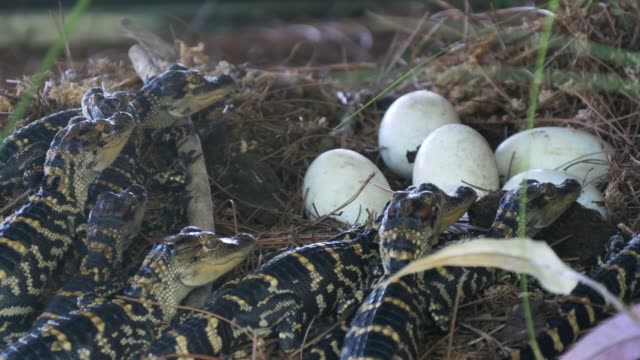Those who regularly jog or walk their pets along the Brick Ponds in North Augusta, Phinizy Swamp or other known alligator habitats should take extra precautions as nesting season has begun.
All across the CSRA, mama alligators have lain their eggs and are nesting, and they can be very protective of their clutch.
MORE: New school year, same Richmond County shenanigans
Male alligators are known to “pond jump” during the mating season, which is late April through late June, hunting for females with which to mate. The beast’s mating call sounds like the revving engine of a 1960s muscle car.
According to the U.S. Fish and Wildlife Service, alligators are mostly polyandrous, meaning that both males and females will have multiple partners during the mating season; therefore, the female may carry the fertilized eggs of many males.
Females will prepare to lay their eggs by digging a small shallow hole near the water’s edge of the bank and then cover the eggs with leaf litter and twigs. However, sometimes the top layer of eggs can remain visible.

It takes about 65 days for the hatchlings to appear, and all throughout that time, the female will fiercely guard the clutch from predators, such as the invasive tegu lizard.
The Georgia Department of Natural Resources warns people not to approach any mound that might be a nest because while one might not see the mother anywhere, she is likely submerged with a sharp eye on the nest and will attack anything that comes close to it.
It is also against the law to disturb a nest.
According to the GDNR, only nine alligator attacks and one fatality have been recorded in Georgia from 1980 to 2023; however, it is important to note that alligators were once hunted to near extinction and were only taken off the “total protection” list in 1987.
Since that time, the population has exploded to roughly 250,000 in Georgia. It is still illegal to hunt gators without a permit.
U.S. Army Corps of Engineers Ranger David Quebedeaux says he is seeing more and more alligators at Clarks Hill and warns that swimmers should stick to designated swimming areas and avoid wading into ponds at all costs.
“We’ve got them in Modoc, and there are some gators at a very clearly marked pond at the Petersburg Campsite. Growing up around gators, I can tell you that you need to be careful where you swim, because if you are in an area with alligators, you might not see them, but they will see you. I definitely would never approach a nest,” Quebedeaux said.
Scott Hudson is the Senior Investigative Reporter and Editorial Page Editor for The Augusta Press. Reach him at scott@theaugustapress.com










